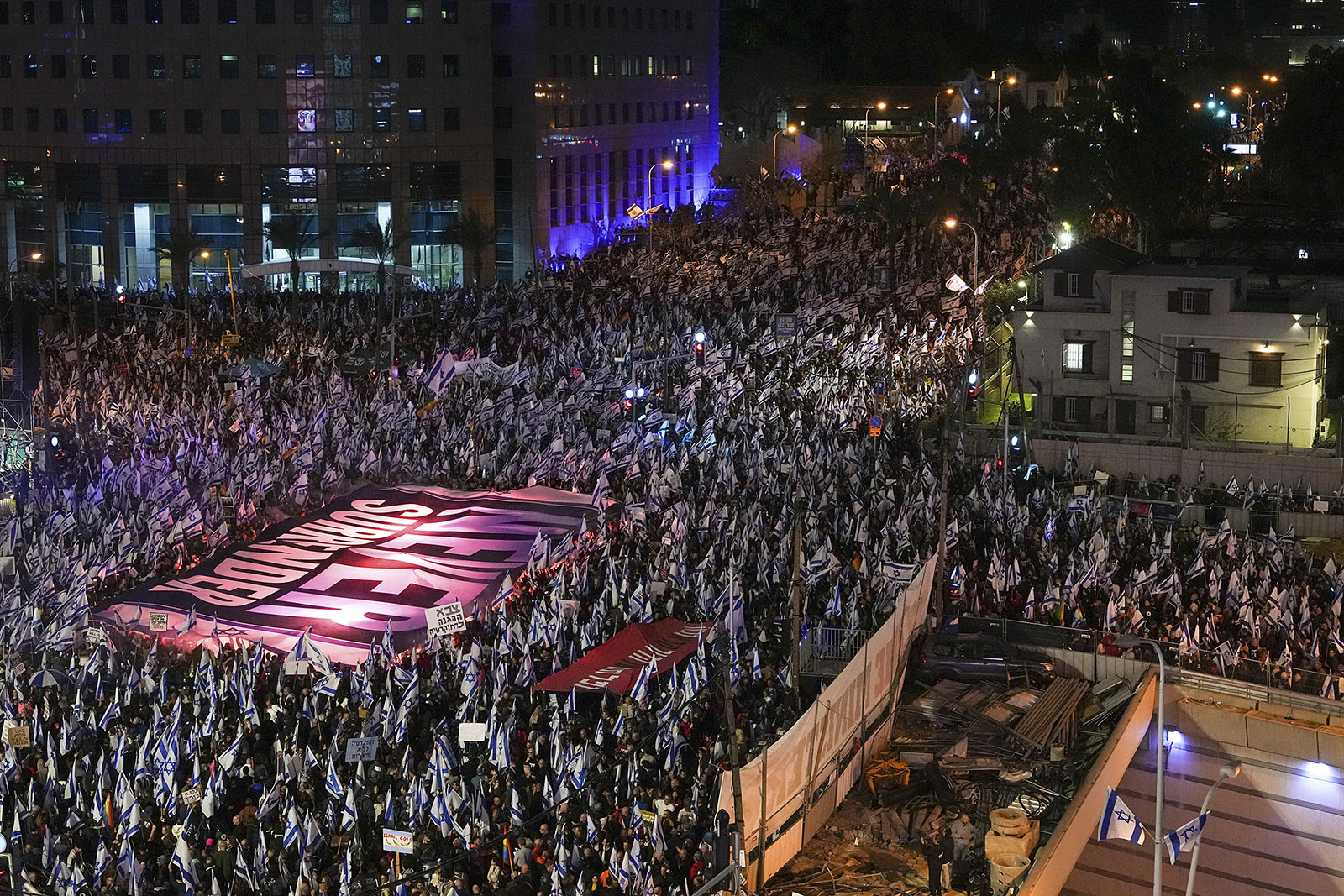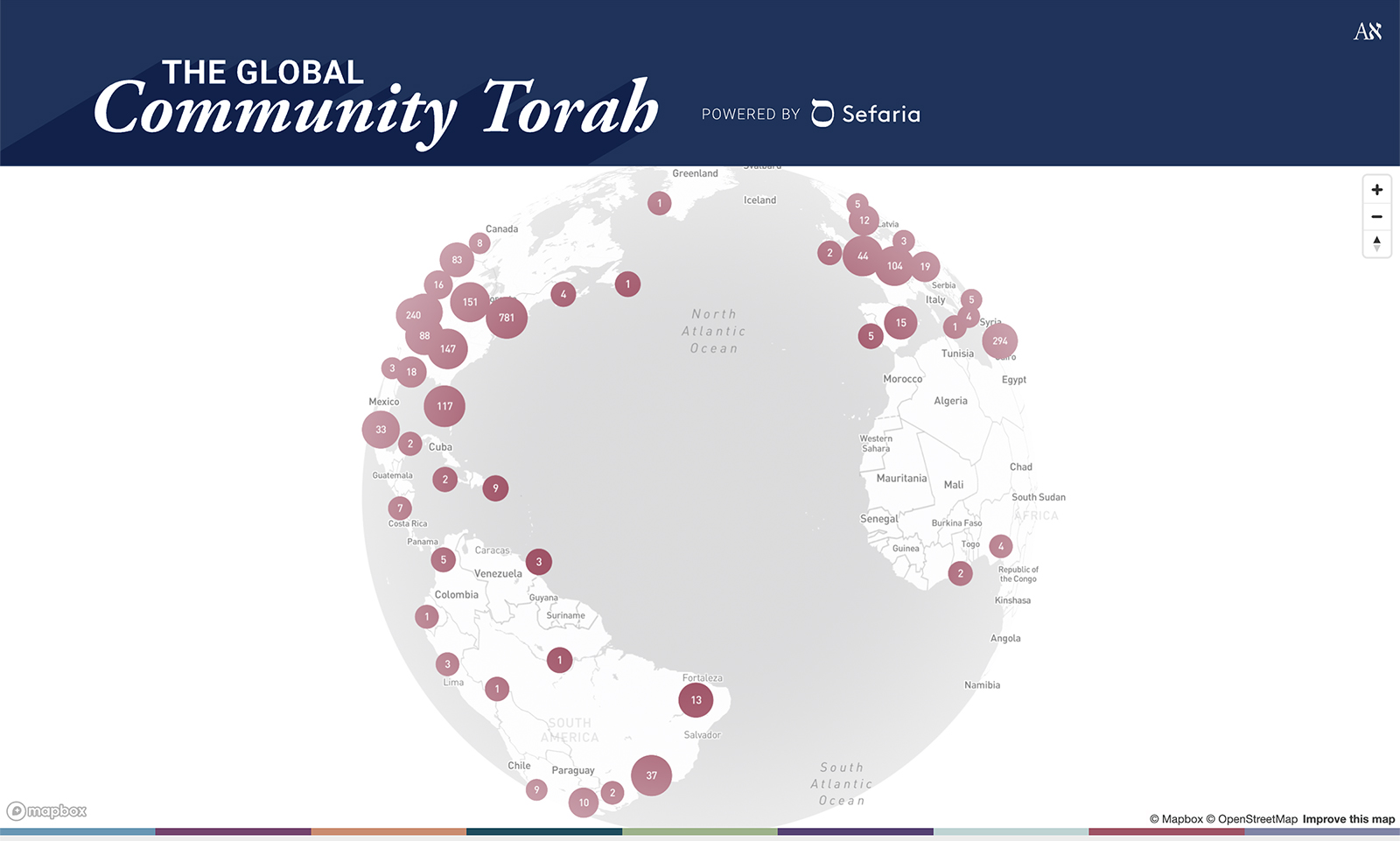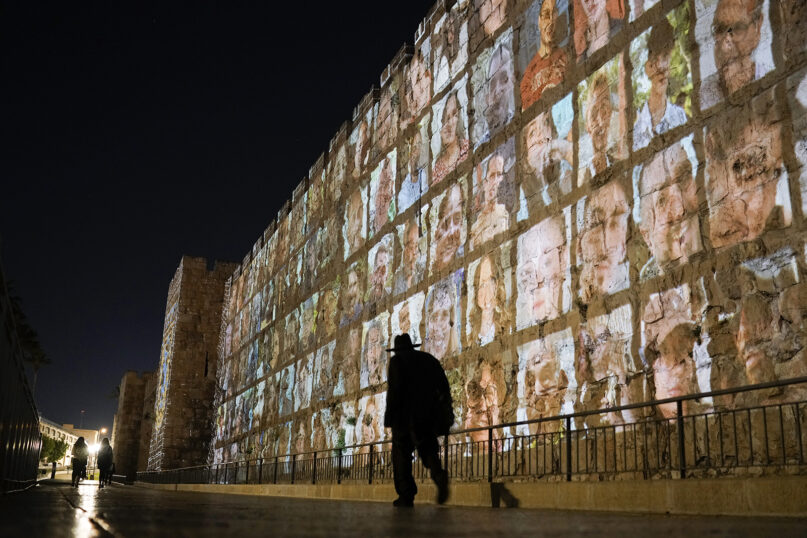(RNS) — As 2023 began, Israeli Prime Minister Benjamin Netanyahu had recently returned to power with a right-wing governing coalition that included radical Jewish nationalists, raising questions of Jewish identity and inflaming relations with Muslims over the use of the holy sites around the Al-Aqsa Mosque complex and the Western Wall.
When Hamas attacked Israel on Oct. 7 from Gaza, at the end of the Jewish High Holidays, it named its deadly assault “Al-Aqsa Deluge,” painting the violence as a religious war. But Hamas’ action has become a major turning point in the 75-year-old Israeli-Palestinian conflict, embroiling emotions around the world and subjecting Jews far from the fighting to antisemitic insults and violence.
Though the war dominated news about Judaism and Jews for the latter part of 2023, there were also signs of revival amid the turmoil. A year in review:
1. The Israel-Hamas war
On Oct. 7, Hamas carried out its ferocious slaughter of 1,200 Israeli civilians and military personnel, seizing more than 240 hostages and taking them back to Gaza. It was the deadliest assault on the Jewish people since the end of the Holocaust in 1945. The terrorist attack, savage in its bloody murder of whole families and its sexual violence, shattered Israel’s sense of national security months after Israelis celebrated their hard-won independence 75 years ago.
Many Israelis and people across the Jewish Diaspora felt equally violated by a political and popular response that often justified the attack as the result of Israeli policy. Critics labeled the Jewish state a nation of “privileged white colonizers” — ignoring that the wide diversity of the Israeli Jewish population of 7.2 million people stems from Iran, Iraq, Ethiopia, Morocco, Egypt, Yemen and other African and Asian countries, many of whom fled to Israel to escape religious and political persecution.
At the United Nations, meanwhile, the organization that in 1947 called for the partition of British Mandate Palestine into a Jewish state and an Arab state consistently singled out Israel for condemnation, continuing a streak of adopting more resolutions aimed at criticizing Israel than all other countries combined.
By mid-November, American Jews and their allies rallied on the National Mall in Washington to counteract the attention given to protests to Israel’s response to Hamas. As many as 290,000 people participated in the March for Israel. An extraordinary cross section of the American Jewish community was joined by evangelical Christian speakers and a remarkably bipartisan contingent from Congress as the crowd chanted its opposition to an early cease-fire.
2. The battle against antisemitism
Even before Oct. 7, the number of virulent, often lethal, antisemitic acts exploded in many parts of the world, including the United States. In May, the Biden White House announced a strategy to counteract antisemitism, including education initiatives and funding to bolster security at Jewish institutions nationwide.
In the aftermath of the Hamas attack on Israel, college and university campuses became the scene of vicious verbal and physical attacks upon Jewish students and faculty members.
President Joe Biden, who has pledged U.S. support for Israel’s military response to the Hamas massacre, doubled down on his attempt to mitigate antisemitism, calling the surge in anti-Jewish sentiment “sickening” at a White House Hanukkah ceremony. That same week, however, a congressional hearing exposed the weak responses to antisemitic incidents on campus. Asked about loudly proclaimed threats of genocide against Jews at one college, the presidents of Harvard University, the University of Pennsylvania and the Massachusetts Institute of Technology seemed to waffle. Penn’s president was forced to resign a few days after her tepid public testimony.

Israelis protest against plans by Prime Minister Benjamin Netanyahu’s government to overhaul the Israeli judicial system, in Tel Aviv, Israel, March 18, 2023. (AP Photo/Tsafrir Abayov)
3. Protests against Israel’s judicial overhaul
Between January and September, hundreds of thousands of people of all ages and backgrounds marched every Saturday night in Israel to oppose Netanyahu’s proposed changes to the judicial system, which would significantly weaken the power of the Jewish state’s Supreme Court. The war against Hamas suspended both the weekly marches and Netanyahu’s efforts, but it is an issue sure to return to a bitterly divided Israeli population.
4. A new demand for rabbis in new roles
While enrollment in many rabbinic schools in the United States is down, the demand for rabbis is increasing. In 2023 non-Orthodox Jewish seminaries continued to adapt to a shifting environment that departed from the traditional role of rabbi as the spiritual leader of a congregation. Non-Orthodox rabbinic training often includes curriculum change, tuition reduction and online learning. Rabbis are needed as hospital chaplains, educators, campus clergy and organizational professionals. The year saw para-rabbinic training in an effort to attract seminary students.

(Image courtesy of Sefaria)
5. A boom in Torah reading at Sefaria
The online library of Jewish texts, Sefaria (the name is derived from the Hebrew word for “book”), has become the go-to destination for people who want to study Judaism’s basic religious texts in their original languages of Hebrew and Aramaic accompanied by superb English translations. It has also led to an unanticipated boom in reading these Scriptures.
In 2023 more than 600,000 visitors clicked onto Sefaria each month to study the Bible, Mishnah, Talmud, Midrash, Halachah, Liturgy, Religious Thought, and many other texts as well as accessing online dictionaries and encyclopedias.
6. Remembering the legacy of Golda Meir
Forty-five years after her death, the remarkable legacy of former Israeli Prime Minister Golda Meir was celebrated in a motion picture starring Helen Mirren as the tough-minded leader who led her nation through the 1973 Yom Kippur War. The film complements a new biography of Meir, published in August by Deborah Lipstadt, the U.S. special envoy to monitor and combat antisemitism.
In 2023, we also marked the deaths of these remarkable Jewish leaders and thinkers:
- Shlomo Avineri, a prominent Israeli academic and Foreign Ministry official.
- David Ellenson, a renowned rabbinic scholar and president of the Hebrew Union College-Jewish Institute of Religion.
- Dianne Feinstein, a long-serving U.S. senator from California.
- Judith Heumann, who championed the cause of disabled people.
- Henry Kissinger, a former secretary of state.
- Harold Kushner, a rabbi and author of the bestselling book “When Bad Things Happen to Good People.”
- Norman Lear, creator of the popular TV show “All in the Family” and many other iconic television comedies.
(Rabbi A. James Rudin is the American Jewish Committee’s senior interreligious adviser and the author of numerous books, including “The People in the Room: Rabbis, Nuns, Pastors, Popes and Presidents.” He can be reached at jamesrudin.com. The views expressed in this commentary do not necessarily reflect those of Religion News Service.)
This article has been corrected. An earlier version identified Daniel Ellsberg, who died in 2023, as Jewish. Though he often described himself as Jewish ethnically, Ellsberg was a Christian Scientist.





